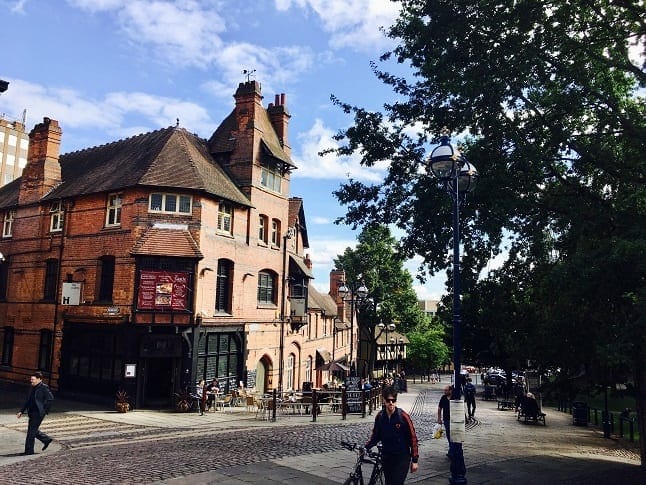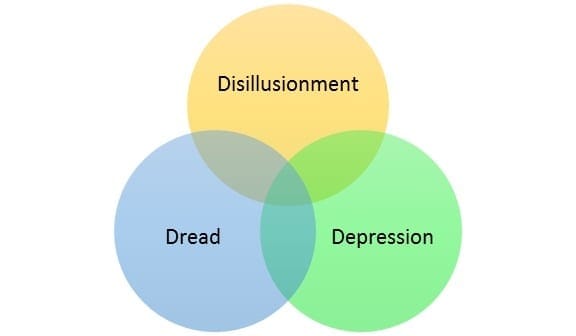What is reverse culture shock?
I sat in the office of the psychiatrist, wondering how exactly I had landed up here. It didn’t seem all too long ago that I was looking back at what I had achieved over my three years studying abroad and thinking – wow, that was truly incredible!

But returning to Singapore had been a lot harder than I had realised. It started with a complete void in my heart. Everything that I had known and built up over the past three years was suddenly…gone. The people, place, and peace that I had come to enjoy in England… all that was gone. To fill that void within me, I started binge eating. What else could I turn to to placate that pain within me?
That pain became physical, with times when I felt a sudden unexplained heaviness in my heart. There were other times when I felt as if someone had punched a hole in my heart, ripped it out, and left it out to bleed.
I hope that isn’t you today. Moving back can be difficult. But from my experience, what can be more difficult is understanding what exactly you are dealing with. Without knowing what you are facing, how can you know how to help yourself, or to find help?
Today, I hope this helps you understand more about what reverse culture shock is and what it feels like. It might not be the same for everyone. Whilst everyone’s experience is unique, there are some common threads that tie the experience together.
Remember the culture shock you first experienced when you arrived in your new country? Well, reverse culture shock is what happens when you return to your home country. You find that what’s familiar has now become unfamiliar. You feel like an alien in your own homeland. You seem like a stranger amongst your friends. Returning back is like coming back in a time capsule. The time capsule breaks open, and you realise…everyone, everything, has moved on. The people and place you remembered has changed.
I like seeing the emotions of reverse culture shock represented by 3 Ds – disillusionment, depression, and dread.

As you return to your home country, your initial excitement at seeing your new friends, trying the food you used to love, and enjoying the weather will slowly wear off. For me, it started to turn into disillusionment. I was disillusioned with almost everything I experienced. I was disillusioned that Singapore seemed so sterile. Everyone seemed stuck in their phones, and their own little bubble. No one bothered to make small talk on the bus or the train. No one even bothered to say ‘thank you’ to the bus driver, which had been such a distinct part of life in Nottingham.
I was disillusioned with the people I met. Everyone seemed so enamoured with their jobs, the career ladder, and getting onto that Singaporean dream. No longer was there the vibrancy of university life, where we were constantly meeting people from every corner of the world.
Depression slowly set in for me. It might set in for you. Depression felt like a sadness that never lifted. Everyday, I was reminded of the fact that my friends were no longer around me. Each morning, the honking of cars was a cruel wake-up call to the fact that the peace I used to enjoy was no longer there. Each evening, the void of activity was a deep contrast to the flurry of activity that used to happen for me.
There was a poignant incident when I remembered my colleague shouting, ‘Eh go home, go home, it’s time to go home!’ As everyone packed up, I realised that everyone had family, friends or their favourite things to go back to. But me? What did I have to go back to?
That’s how I landed up in the psychiatrist’s office.
As time has passed, I have come to see the depression as an accompanying side dish to the main course of grief and loss. Reverse culture shock is heartbreak. The world you’ve built for yourself over days, months, and years, suddenly falls apart. It’s no surprise that you are struggling.
Dread. As a person who had been generously sponsored to study overseas, the accompanying bond felt like a jail term. I dreaded the start of it, and yearned for the end of it. Perhaps today, that’s you too. You’ve been sponsored. A return home has been something mandated, rather than something missed. Dread overwhelms you as you slowly count down the days you need to serve.
Whatever you are experiencing, know this. Firstly, it’s not easy. Get in touch with what you feel, rather than stuffing your emotions under more activity. We are human beings, not human doings!
Secondly, but more importantly, you’re not alone. That’s why I started writing. I firmly believe you don’t have to suffer alone.
Please reach out to John at www.savethesocialworker.com if you would like to chat more to someone.
This is the fourth of a 5-part series on dealing with culture shock.
Part 1: Why does culture shock and reverse culture shock happen?
Part 2: Dealing with culture shock
Part 3: Reverse culture shock stages
Part 5: Overcoming reverse culture shock
Keen on a career in social work? Read this!

John is a registered social worker who has worked with hundreds of parents at a Family Service Centre, and is the author behind Take Heart, which helps young people better deal with their emotions.





